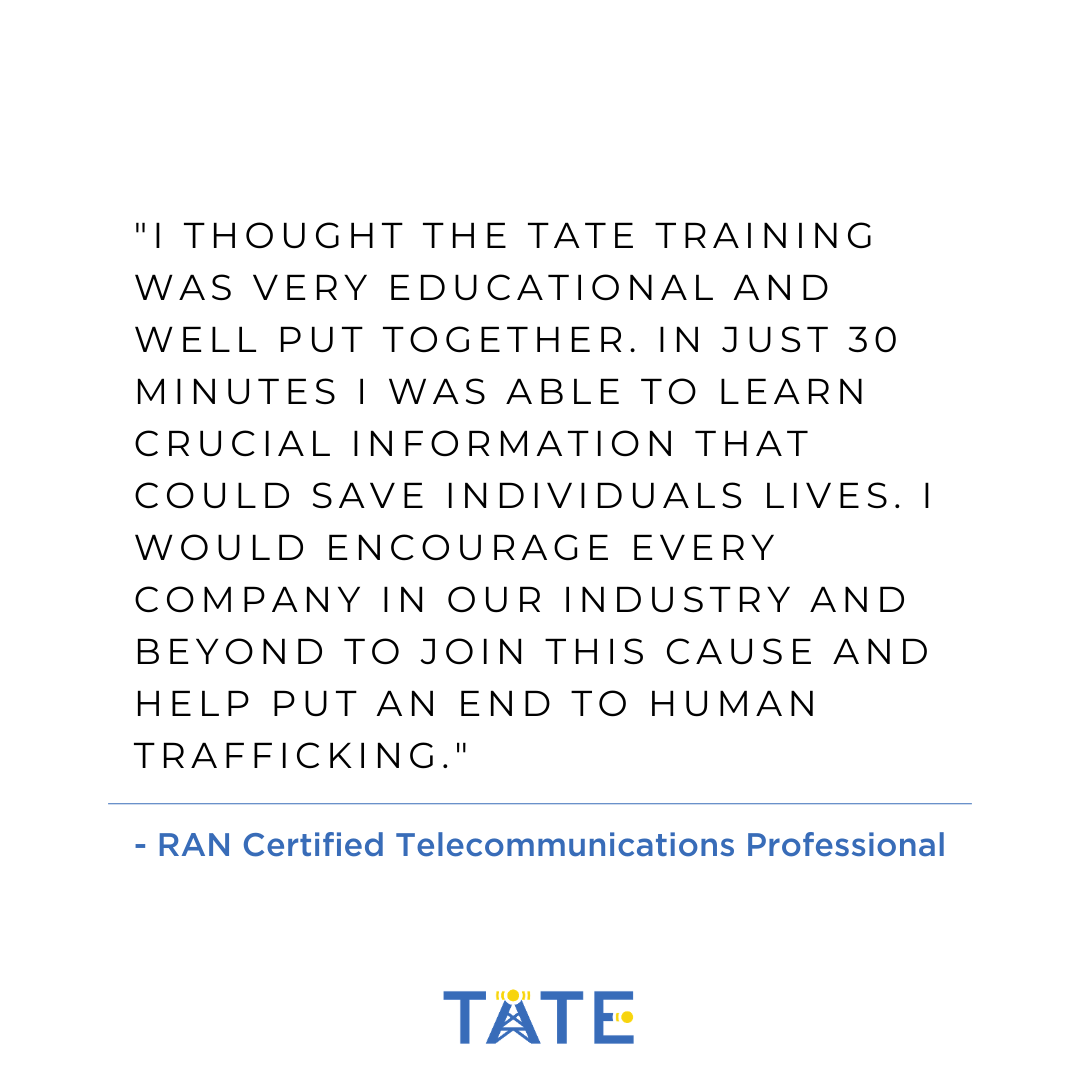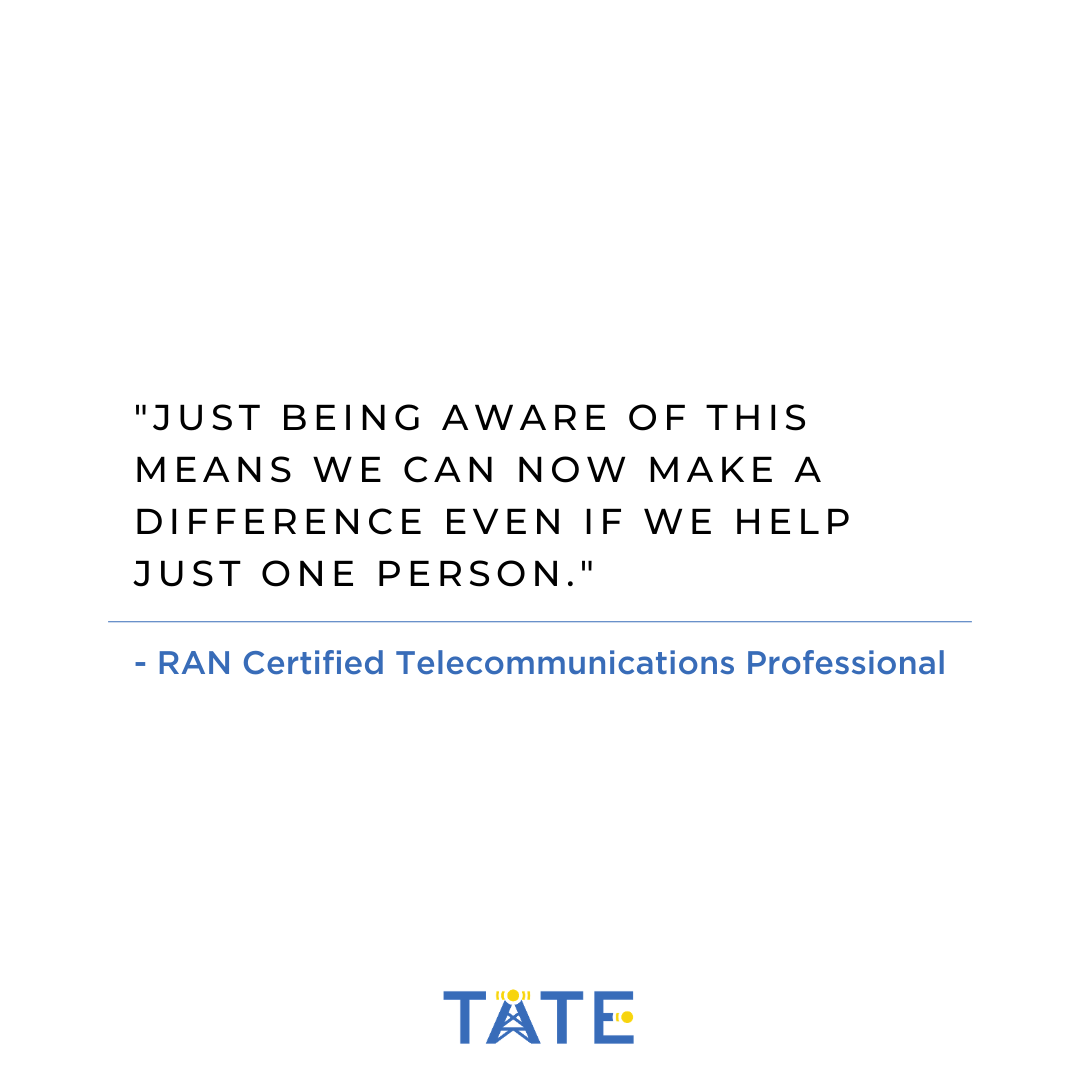
The Telecommunications Industry is Taking a Stand Against Human Trafficking, Here’s HowPosted on June 23, 2021 Telecommunications Against Trafficking and Exploitation (TATE) was established in 2020 in response to a need for more eyes and ears trained to recognize the signs of human trafficking in our communities. Human trafficking is very real, and what many do not know is that it occurs right here within the United States. The media portrays it as a crime straight out of a “Taken” movie that occurs only in nations across the globe, but it happens in our own backyards and oftentimes involves more psychological manipulation than physical force. Human trafficking involves a perpetrator’s use of force, fraud, or coercion (or a combination of the three) in an effort to attain forced labor or commercial sex acts from another individual. Many immediately think of sex trafficking when the topic of human trafficking is circulating on their TV screens or in their newsfeeds, however labor trafficking is a huge issue that also needs to be addressed. Numbers depicting an accurate count of individuals victimized by this crime are hard to come by, as incidents of human trafficking go vastly underreported. According to the International Labour Organization, on a global scale, an estimated $150 billion is generated in profit annually. One might ask, “how can I, as just one person, make a significant difference when up against a crime as sizable and arguably daunting as this?” This is where the TATE initiative comes in.
After meeting at a networking event, Ashlie Bryant, Co-Founder and CEO of 3Strands Global Foundation, and Kenny Blakeslee, President and CEO of Apex Site Solutions and Pulse Signal Solutions, decided that they could impactfully join forces to develop an industry-tailored training to equip telecommunications professionals with the knowledge and tools needed to spot signs of human trafficking and respond with prevention in mind.
3Strands Global Foundation is a national nonprofit, operating with a mission to mobilize communities to combat human trafficking through prevention education and reintegration programs. Partnering with the telecommunications industry offered a new avenue through which 3SGF could mobilize more community members. The 3SGF team believes that prevention changes everything and that eradicating human trafficking and exploitation can be done through preventing the crime before it takes place. The 3SGF team brought to the project their contextual knowledge of the issue itself and what it looks like in real life. Kenny Blakeslee and other leaders in the telecommunications industry, including Jim Tracy of Legacy Telecommunications, LLC, brought their expertise and understanding of the daily operations of a telecommunications professional. Collaboratively, they developed TATE and built the RAN Training and Certification Course. RAN stands for “Recognize and Notify” and the training includes an overview of the crime of human trafficking, what signs to look for, and how to report those recognized signs to the proper authorities who can then step in to stop the activity. The training is accessible to every telecommunications professional online now, and thanks to many generous sponsors, it can be accessed at no charge to those being trained, or their employers. It can be completed in 30 minutes, and includes three short videos, a certification quiz, and printable resources.  
To-date, the training has reached over 470 telecommunications professionals and that number continues to grow. To access the training and learn more, head to www.3sgf.org/tate today!
Related Article: Doing Well While Doing Good: Community Affairs Charity Spotlight |

